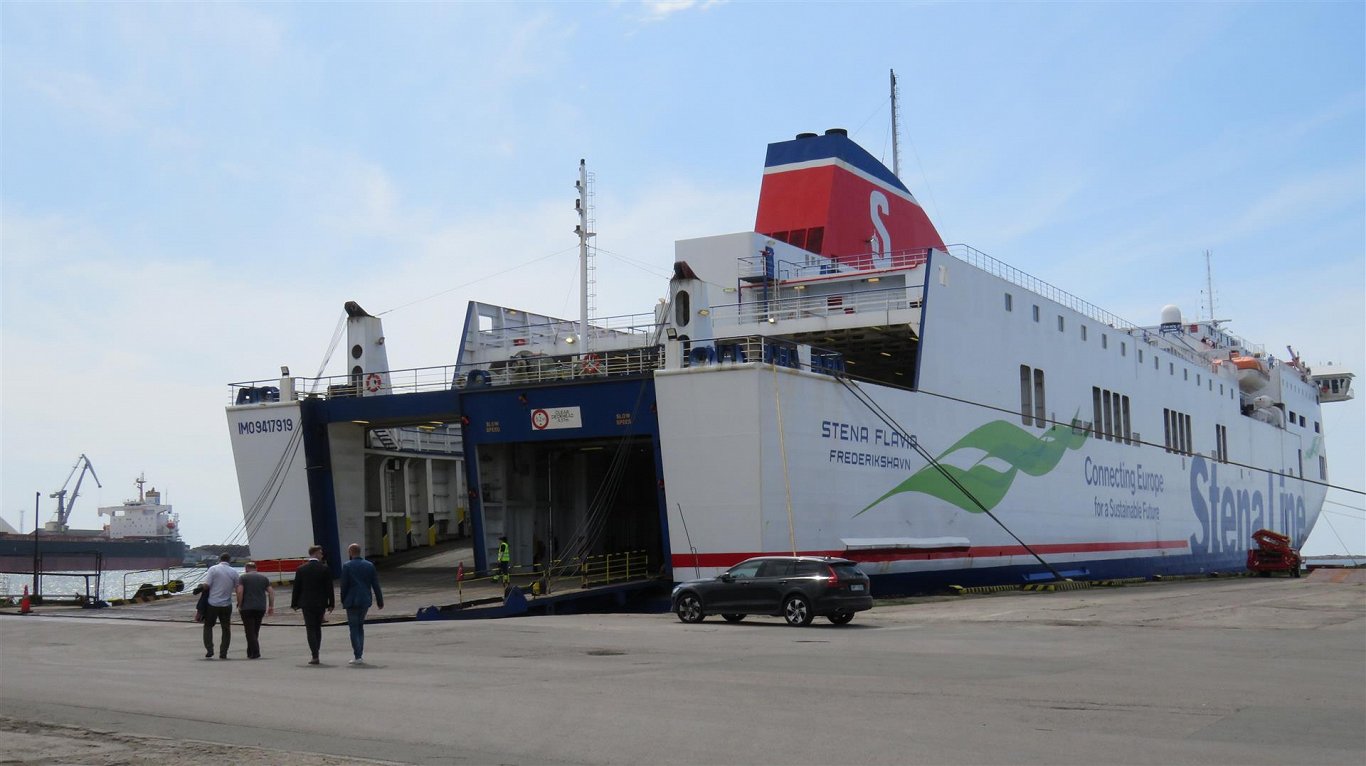Liepāja Special Economic Zone (SEZ) stevedore company Terrabalt representative Āris Ozoliņš said that the situation is difficult at the moment and conditions may change, but freight transport through Liepaja port goes also in the direction of Russia.
“Clearly, we are following the sanctions carefully, cargo is not coming from Germany anymore. There are cargoes that go to Russia, but we mostly have other countries – Kazakhstan, Uzbekistan. In the sector of Russia and Belarus, of course, there is a drop, we hope that the war will ever come to an end,” said Ozoliņš.
Ozoliņš said new capabilities and speed had emerged in collaboration with ferry operator Stena Line. Cooperation is underway in transporting war refugees from Ukraine to Germany for free.
“On average around 100 a day per ferry. Sten aLine provides all services for free, and Terrabalt does not pay for the service. Given this situation, though we don't know how long it will last, but we need to support the Ukrainians. There is the summer and tourism season, there is no way to the East, but there is a flow of tourists in the direction of Germany, we are coping,” Ozoliņš said.
More modern and newer ships connecting Latvia with Germany have been in place for several months. This is a significant benefit for Liepāja port, said Uldis Hmieļevskis, Liepājas SEZ manager.
“Ferries are more comfortable and spacious. We also see this in cargo statistics at the port of Liepāja: ferry cargo is a growing segment. The trend is very stable. Transport companies are increasingly taking advantage of the possibility of carrying their cargo not by road through Poland, which requires driving for several days, this allows them to cut costs,” Hmieļevskis noted.
The developers of the ferry line initially planned to increase the flow of German tourists to Latvia this summer, but the conditions of the war will not allow this, at least for the time being, said Stena Line's representative in the Baltic Johan Edelman.
The company provides transportation with two ferries, Stena Flavia and Stena Livia. The ferries run six times a week and the journey takes about 21 hours.





























